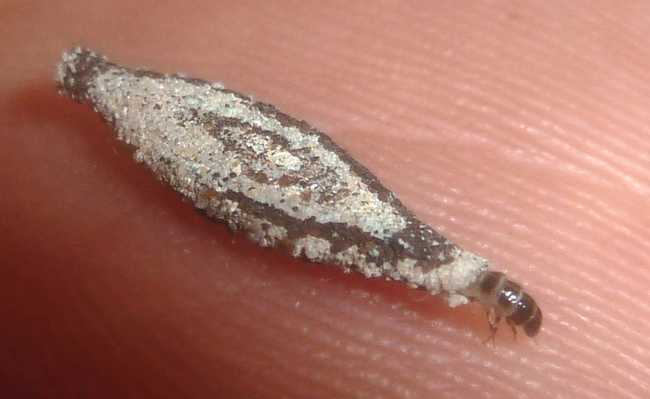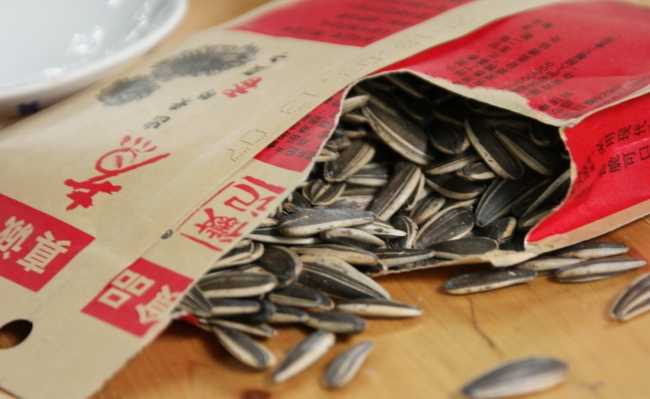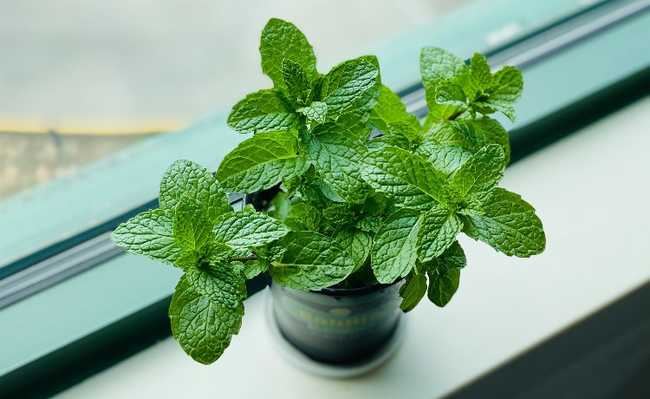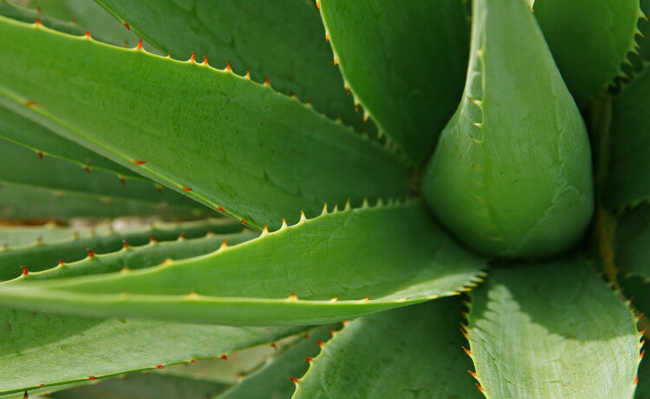Salvia officinalis: scientifically proven benefits
THE Salvia officinalis it has analgesic, antioxidant, antiseptic, anti-inflammatory effects and more. Understand
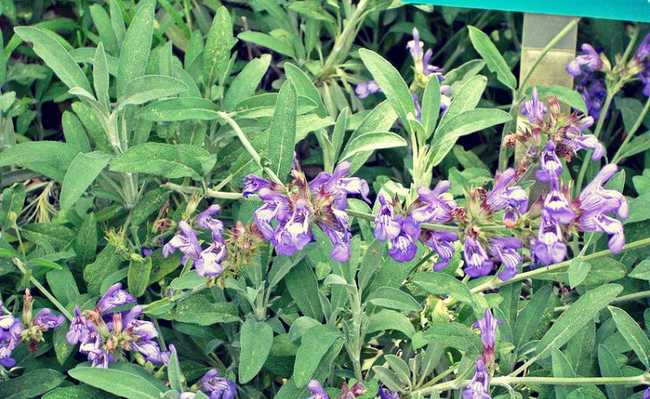
Image: Kitchen sage (Salvia officinalis 'Compacta'), Mint family (Lamiaceae) by Andrey Zharkikh is licensed under (CC BY 2.0)
THE Salvia officinalis is a plant native to the Middle East and the Mediterranean widely used in folk medicine. This type of salvia is used to treat seizures, ulcers, gout, rheumatism, inflammation, dizziness, tremors, paralysis, diarrhea and hyperglycemia. Recent studies have shown that the Salvia officinalis has a series of pharmacological activities in the body, including anticancer, anti-inflammatory, antinociceptive (which reduce the ability to perceive pain), antioxidant, antimicrobial, antimutagenic (reduce genetic mutations), anti-dementia (reduce dementia), hypoglycemic (reduce the blood glucose concentration) and lipid-lowering drugs (help to control cholesterol levels).
Bioactive compounds from Salvia officinalis
The main phytochemicals present in the flowers, leaves and stem of Salvia officinalis are alkaloids, carbohydrates, fatty acids, glycosidic derivatives, phenolic compounds, polyacetylenes, steroids, terpenes and waxes.
The essential oil of Salvia officinalis features over 120 components, including borneol, camphor, caryophyllene, cineole, elementene, humulene, levene, pinene, and thujone.
Linalol is the most present phytochemical in the stem of Salvia officinalis ; flowers have the highest level of α-pinene and cineole; and bornyl acetate, camphene, camphor, humulene, limonene and tuona are the most common phytochemicals present in leaves. However, it should be considered that, like other herbs, the chemical composition of Salvia officinalis may vary depending on environmental conditions such as weather, water availability and altitude.
Anticancer and Antimutagenic Effects
The antitumor properties of Salvia officinalis has been widely studied. Salvia tea was reported to prevent the early stages of cancer cell formation in the colon, breast, uterus, rectum, pancreas, larynx, lung, skin, and oral cavity.
In addition, the essential oil of Salvia officinalis has been shown to reduce UV-induced mutation. The antioxidant properties of Salvia officinalis in DNA can be explained by its antioxidant activity.
Antioxidant Activities
Oxidative stress plays an important role in the onset and progression of various diseases such as cancer, cardiovascular disorders, diabetes and neurological diseases. Evidence from several studies suggests that Salvia officinalis it has potent activities against oxidative stress, better known as antioxidant activities. The main responsible for the antioxidant activities of Salvia officinalis these are carnosol, rosmarinic acid and carnosic acid, followed by caffeic acid, rosmanol, rosmadial, genkwanin and cirsimaritin.
Anti-inflammatory and anti-pain properties
Inflammation and pain are the two main symptoms that occur in response to tissue damage. Conventional anti-inflammatory drugs are accompanied by unpleasant side effects such as gastrointestinal and cardiovascular complications. Therefore, the search for new anti-inflammatory agents that reduce pain perception, with fewer side effects, is a continuous search. Pharmacological studies have shown that Salvia officinalis it has anti-inflammatory and anti-pain effects, making it a candidate for replacement for conventional remedies.
The plant has been shown to help control neuropathic pain (a type of painful sensation that occurs in one or more parts of the body) induced by chemotherapy.
The flavonoids and terpenes present in Salvia officinalis they are the compounds that most contribute to anti-inflammatory and anti-pain actions.
- What are terpenes?
antiseptic effects
Studies have shown the antimicrobial effects of Salvia officinalis . The essential oil and the ethanol extract of the plant had strong bactericidal and bacteriostatic effects (which prevent the proliferation of bacteria) against the Bacillus cereus, Bacillus megaterium, Bacillus subtilis, Enterococcus faecalis, Listeria monocytogenes and Staphylococcus epidermidis.
In addition to the antibacterial action, it was reported that Sage officinalis it has antifungal, antiviral and antimalarial effects. The plant showed antifungal activity against fungi Botrytis cinerea, Candida glabrata, Candida albicans, Candida krusei and Candida parapsilosis.
THE Salvia officinalis it also has an inhibitory action on the growth of multiresistant bacteria, such as Streptococcus and Staphylococcus aureus. The effect of ursolic acid from this type of sage on Enterococcus faecium and multiresistant bacteria is stronger than ampicillin.
Cognitive and memory improvement
There is increasing evidence to suggest that Salvia officinalis it has cognitive and memory enhancement effects. In animal studies, it has been shown that the ethanol extract of Salvia officinalis improved cognitive ability and memory in rats.
Clinical trials with people have shown that Salvia officinalis improves cognitive performance in both healthy patients and patients with cognitive impairment or dementia. Other studies have reported that the aroma of essential oil from Salvia officinalis can improve memory performance in healthy adults.
A clinical trial showed that a four-month treatment with hydroalcoholic extract of Salvia officinalis improved cognitive functions in patients with mild and moderate Alzheimer's disease.
metabolic effects
Extracts from different parts of the Salvia officinalis are able to lower blood glucose, decreasing insulin resistance. Pharmacological studies have shown that the infusion of Salvia officinalis it reduced bad cholesterol levels and decreased body weight and abdominal mass in obese rats and diabetic rats.
The beneficial properties of drinking tea from Salvia officinalis in fat levels were also observed in healthy non-diabetic volunteers.
Side effects
Several clinical trials have reported that the consumption of Salvia officinalis does not induce serious side effects. However, in case of prolonged use or after overdose of ethanolic extract and volatile oil of Salvia officinalis (corresponding to more than 15g of leaves) some unwanted effects were observed, such as vomiting, salivation, tachycardia, vertigo, hot flashes, allergic reactions and even convulsions. The convulsive action of the oil of Salvia officinalis it is due to its direct effect (in doses above 0.5g/kg) on the nervous system.
Camphor, thujone and terpene ketones are considered the most toxic compounds in Salvia officinalis and can induce toxic effects in the fetus and newborn. Therefore, the consumption of Salvia officinalis in pregnancy and lactation.
Did you like the article about the Salvia Officinalis ? So how about getting to know the other types of salvia? Check out the article: "Salvia: what it is for, types and benefits".


